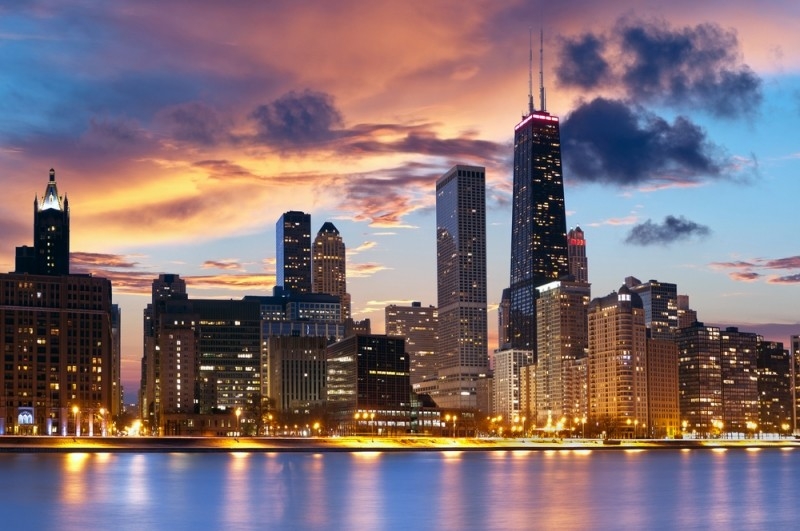On a serious note, I think the city of Chicago is asking for a major auditing problem. The entertainment landscape has changed greatly since the law was put into place.
The law in question first became effective 17 Feb 1986 and was last revised 9 June 2015. "Amusement"
means:
"(1) any exhibition, performance, presentation or show for entertainment purposes, including, but not limited to, any theatrical, dramatic, musical or spectacular performance, promotional show, motion picture show, flower, poultry or animal show, animal act, circus, rodeo, athletic contest, sport, game or similar exhibition such as boxing, wrestling, skating, dancing, swimming, racing, or riding on animals or vehicles, baseball, basketball, softball, football, tennis, golf, hockey, track and field games, bowling or billiard or pool games; (2) any entertainment or recreational activity offered for public participation or on a membership or other basis including, but notlimited to, carnivals, amusement park rides and games, bowling, billiards and pool games, dancing, tennis, racquetball, swimming, weightlifting, bodybuilding or similar activities; or (3) any paid television programming, whether transmitted by wire, cable,fiber optics, laser, microwave, radio, satellite or similar means." The document goes on to give of what is taxed and how they determine if you are subject to the tax. The text is listed at "https://www.cityofchicago.org/content/dam/city/depts/rev/supp_info/TaxRulingsandRegulations/AmusementTaxRuling_5_06_09_2015.pdf"
1. A person is officially listed with the IRS as a professional gambler. Charging that person a 9% tax for amusement because they are on a gambling site could easily be challenged as conducting business even when not actually gambling. The city is therefore legally required to refund the that revenue.
2. A teacher assigns children to watch a particular show on television. That becomes homework even if it would normally be amusement. That money would need to be refunded. At least earlier versions of the ordinance specifically exempted "amusements" for educational purposes.
3. With the way the ordinance is written, while downstream customers that do not live in Chicago may still be affected. If you purchase a ticket online for a local movie or event and the ticket company is based in
Chicago, the company is still liable for taxes on that sell. If you download music and is routed through a node in Chicago, the owner of the node could in theory be liable taxes for the sell or renting of the song.
4. There is not a good definition provided for what "paid television programming" is. It is obvious that any television (or radio) seen using cable, internet, satellite, or requiring specialized descramblers that have subscription fees would qualify if you are being charged a fee for the cable, internet, satellite, or hardware but what about television/radio received via normal broadcast transmission. If you are a patron of the local educational channel and send donations on a regular basis (monthly, annually, whatever) is that now considered paid television programming. Do shopping channels that originate in Chicago paid television programming or do they qualify if you purchase an item and live in Chicago? Since WGN is routinely part of cable service in many areas of the country are Chicago residents now liable for paying for receiving it using a home antenna?
This ordinance is too vague in several areas.
It determines end customer tax liability by "The Department will utilize the rules set forth in the Mobile Telecommunications Sourcing Conformity Act, 35 ILCS 638, to determine sourcing for the amusement tax. In general, this means that the amusement tax will apply to customers whose residential street address or primary business street address is in Chicago, as reflected by their credit card billing address, zip code or other reliable information." Using this method if a person is on vacation to England and downloads a song, they are still liable for the tax even though the activity took place in a different jurisdiction.
